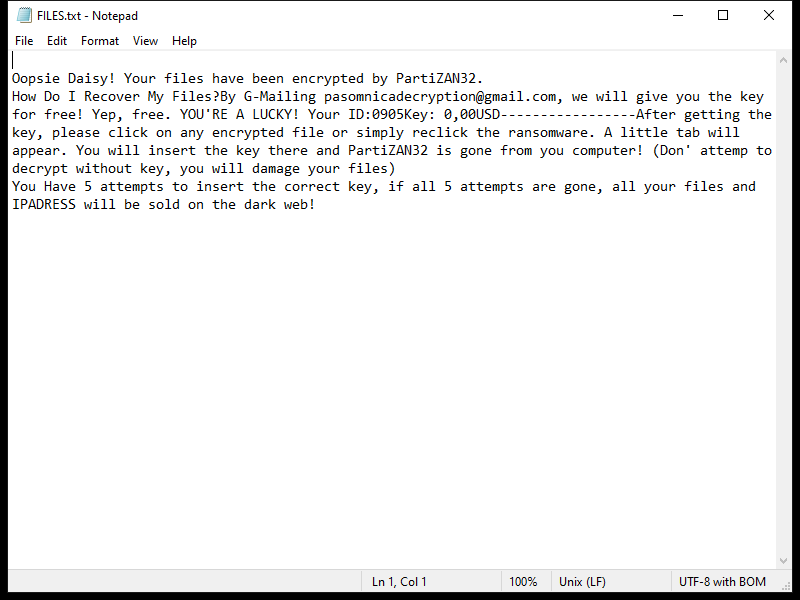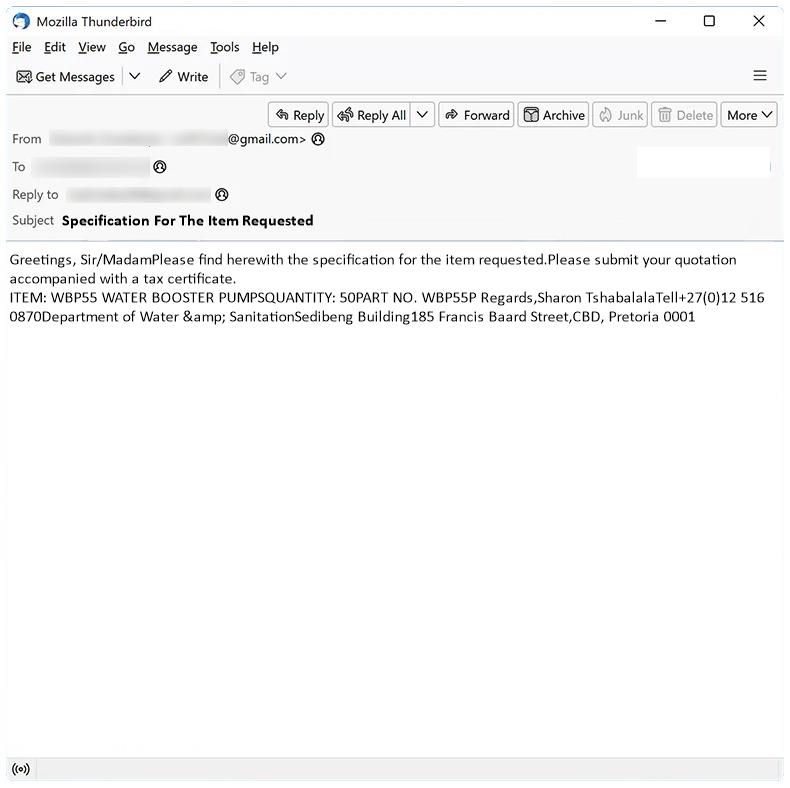PartiZAN32 Ransomware is a type of malicious software that encrypts files on a computer and demands a ransom payment in order to decrypt them. It infects computers through email attachments, malicious websites, or software vulnerabilities.
Once infected, PartiZAN32 Ransomware adds a specific file extension to encrypted files, such as .xqwertzuioplkjhgfyxcvbnmd. It uses advanced encryption algorithms, such as AES or RSA, to lock the files and make them inaccessible without the decryption key.
The ransomware typically creates a ransom note on the desktop or in folders containing encrypted files, informing the victim of the encryption and demanding payment in exchange for the decryption key.
Unfortunately, there are currently no decryption tools available for PartiZAN32 Ransomware. However, victims are advised not to pay the ransom as there is no guarantee that the cybercriminals will provide the decryption key or that it will work properly.
To decrypt .xqwertzuioplkjhgfyxcvbnmd files, victims can try restoring their files from backups, using file recovery software, or seeking help from cybersecurity professionals. It is important to regularly back up important files to prevent data loss in case of a ransomware attack.










